10 Best Vitamin C Supplements in Malaysia (2022) - 10 Best Brands in Malaysia
Looking for the best vitamin C supplement brands in Malaysia? Can Vitamin C actually protect you against the flu virus or even the current coronavirus? Are you taking enough of vitamin C? From the dozens of different brands and products, which one should you choose? Read more about vitamin C in this article. You might be surprised with what you may not know.
 |
Many varieties of vitamin C supplements are available online and offline at your local health stores and pharmacies such as Guardian and Watsons.
As consumers, we'd like to think that the vitamins and supplements we buy are almost the same. In reality, this isn't always the case.
While supplements are regulated in Malaysia, they aren’t held to the same safety standards as pharmaceuticals. Thus, it’s important to purchase supplements from reputable companies.
Some third-party organizations, such as NSF International, ConsumerLab and LabDoor test supplements for purity and label accuracy. You may want to choose a vitamin C supplement that has been tested by one of these companies.
Vitamin C - The Basics
Vitamin C, also known as L-ascorbic acid, is a water-soluble vitamin that is naturally present in some foods, added to others, and available as a dietary supplement. Humans, unlike most animals, are unable to produce vitamin C internally, so it is an essential dietary component.Best Vitamin C Supplements in Malaysia
We have done our research and shortlisted the best for you. The list is based on recommendations by third party organizations and poularity on the local search results.Here are the best vitamin C supplements that you can buy in Malaysia today.
Cautionary Note: Most of the Vitamin C supplements come in dosages that are above the Malaysia's recommended dietary allowance (Malaysia RDA). For adults, the recommended dietary allowance for Malaysian is 70 mg/day for both men and women (Ministry of Health Malaysia).
1. NOW Foods Vitamin C Sustained Release Tablets (Best Bang for Your Buck)
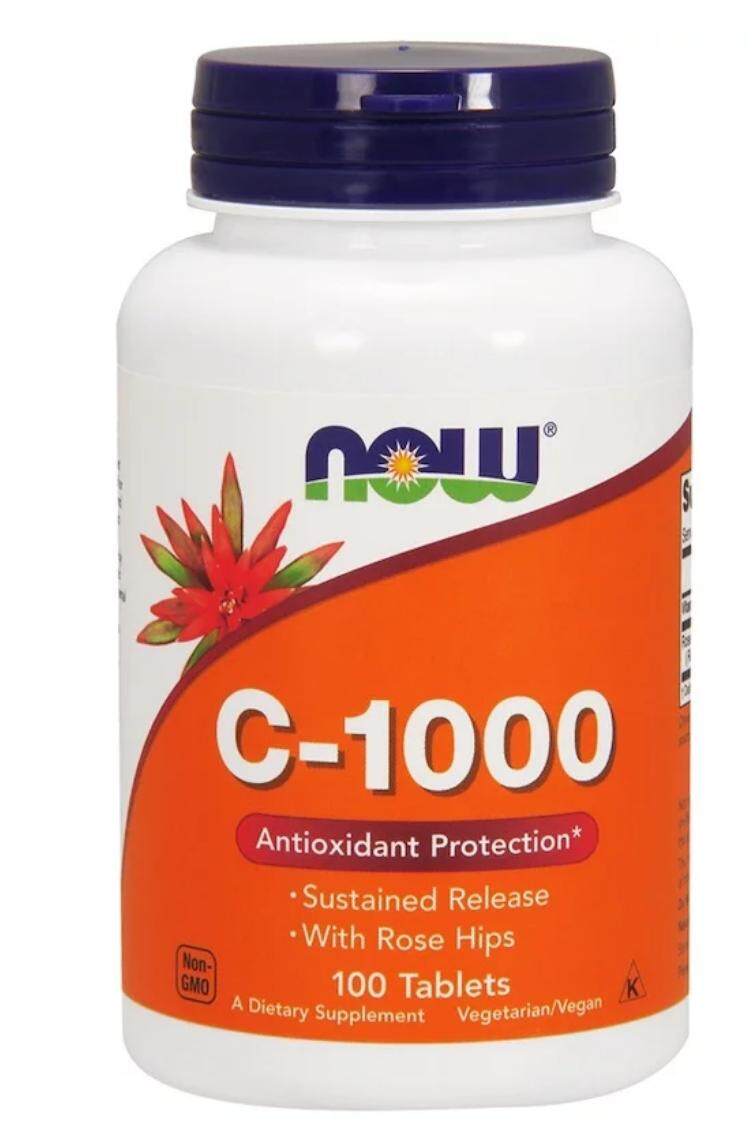
Price: MYR 89.90 > Buy on Lazada Malaysia
Our take: Bargain-priced, potent vitamin C tablets featuring delayed release.
What we like: Each tablet contains 1,000 mg of vitamin C, costing five cents. Includes rose hips for an additional source of vitamin C. Sustained release so it slowly enters your body. NOW Foods prides themselves on their meticulous testing protocols. Each supplement is tested in-house for purity and potency, and all of their manufacturing facilities are certified by the Food and Drug Administration (FDA).
What we dislike: Tablets are too large for some consumers to swallow (Best Reviews).
What we like: Each tablet contains 1,000 mg of vitamin C, costing five cents. Includes rose hips for an additional source of vitamin C. Sustained release so it slowly enters your body. NOW Foods prides themselves on their meticulous testing protocols. Each supplement is tested in-house for purity and potency, and all of their manufacturing facilities are certified by the Food and Drug Administration (FDA).
What we dislike: Tablets are too large for some consumers to swallow (Best Reviews).
Price: MYR 89 (29 % OFF) > Buy Now on Lazada
Our take: Vegetarian vitamin C capsules sourced from natural raw food.
What we like: Contains no binders or fillers. Includes bioflavonoids and added probiotics and enzymes for healthy digestion. Easy to swallow. All of Garden of Life’s products are third-party tested for quality and purity, and its manufacturing facilities are FDA certified.
What we dislike: High-quality formula comes at a premium price tag (Best Reviews).
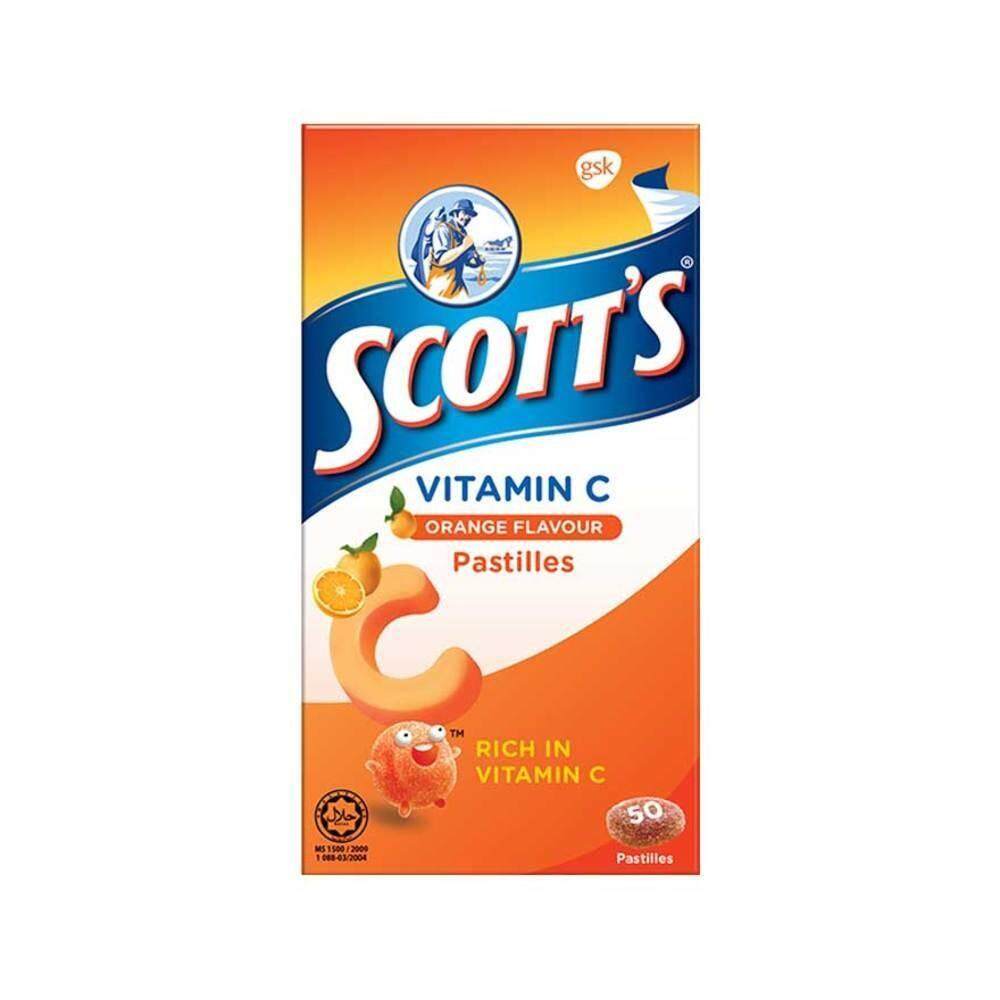
What we like: Contains no binders or fillers. Includes bioflavonoids and added probiotics and enzymes for healthy digestion. Easy to swallow. All of Garden of Life’s products are third-party tested for quality and purity, and its manufacturing facilities are FDA certified.
What we dislike: High-quality formula comes at a premium price tag (Best Reviews).
Quality Rankings: Grade A (LabDoor)
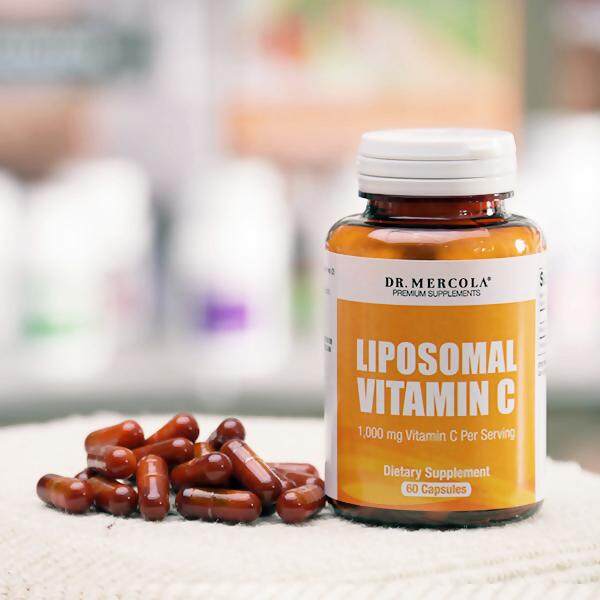
Price in Malaysia: MYR 128 > Buy Now on Lazada Malaysia
Key Data from LabDoor (Labdoor is an independent company that tests supplements)
3. Dr. Mercola Liposomal Vitamin C (Vitamin C 1000mg)

Price in Malaysia: MYR 128 > Buy Now on Lazada Malaysia
Key Data from LabDoor (Labdoor is an independent company that tests supplements)
Overall Quality Ranking: Grade A
Label Accuracy: 99%
Product Purity: 90%
Nutritional Value: 100%
Ingredient Safety: 87%
Projected Efficacy: 94%
4. Scott's Vitamin C Pastilles (Best vitamin C supplement for kids)

Price: MYR 16.48 > Buy Now on Lazada
- 21mg of vitamin C per pastille
- Chewy & fun to eat
- Available in mango, orange, mixed berries & peach
5. Blackmores Vitamin C Malaysia
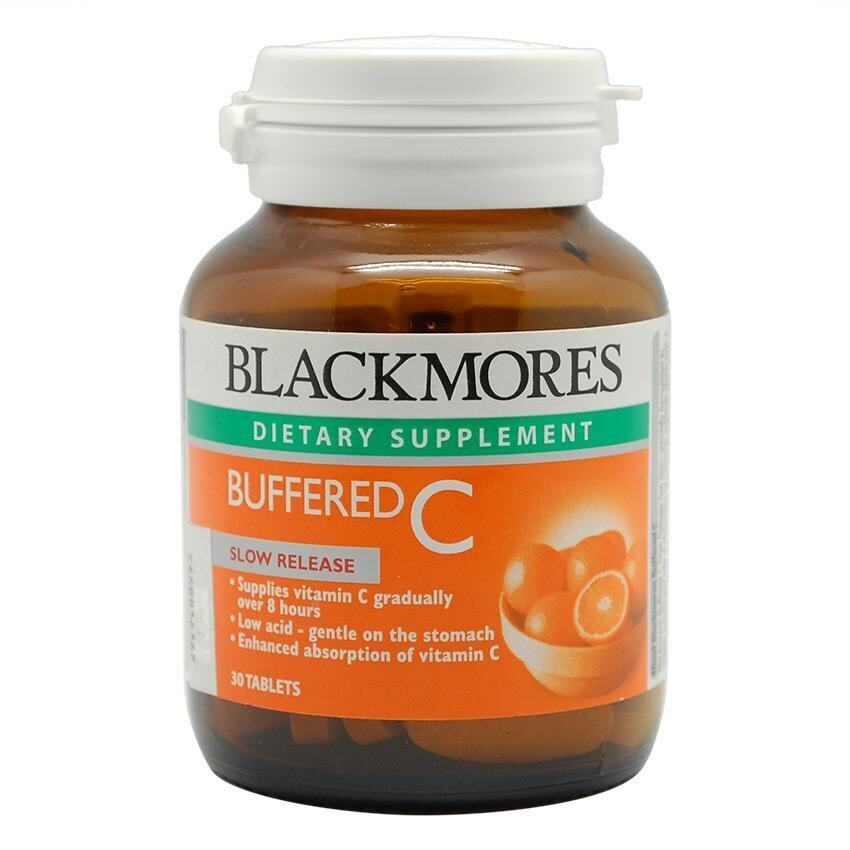
Price: MYR 29.90 > You can purchase Vitamin C as a dietary supplement from Lazada Malaysia (sold by Caring).
Blackmores Buffered C Slow Release has been specially formulated to provide a prolonged rate of absorption by releasing nutrients slowly over a sustained 8 hour period, ensuring that vitamin C is available when your body needs it. This low acid formulation is buffered with mineral ascorbates, so it is gentle on the stomach. It also contains bioflavonoids, including rutin and hesperidin, to help enhance the action of vitamin C in the body.
Each tablet contains Vitamin C 500 mg (from Ascorbic acid 280 mg and Calcium ascorbate 266 mg) and bioflavonoids (hesperidin and rutin).
6. Berocca Vitamin C
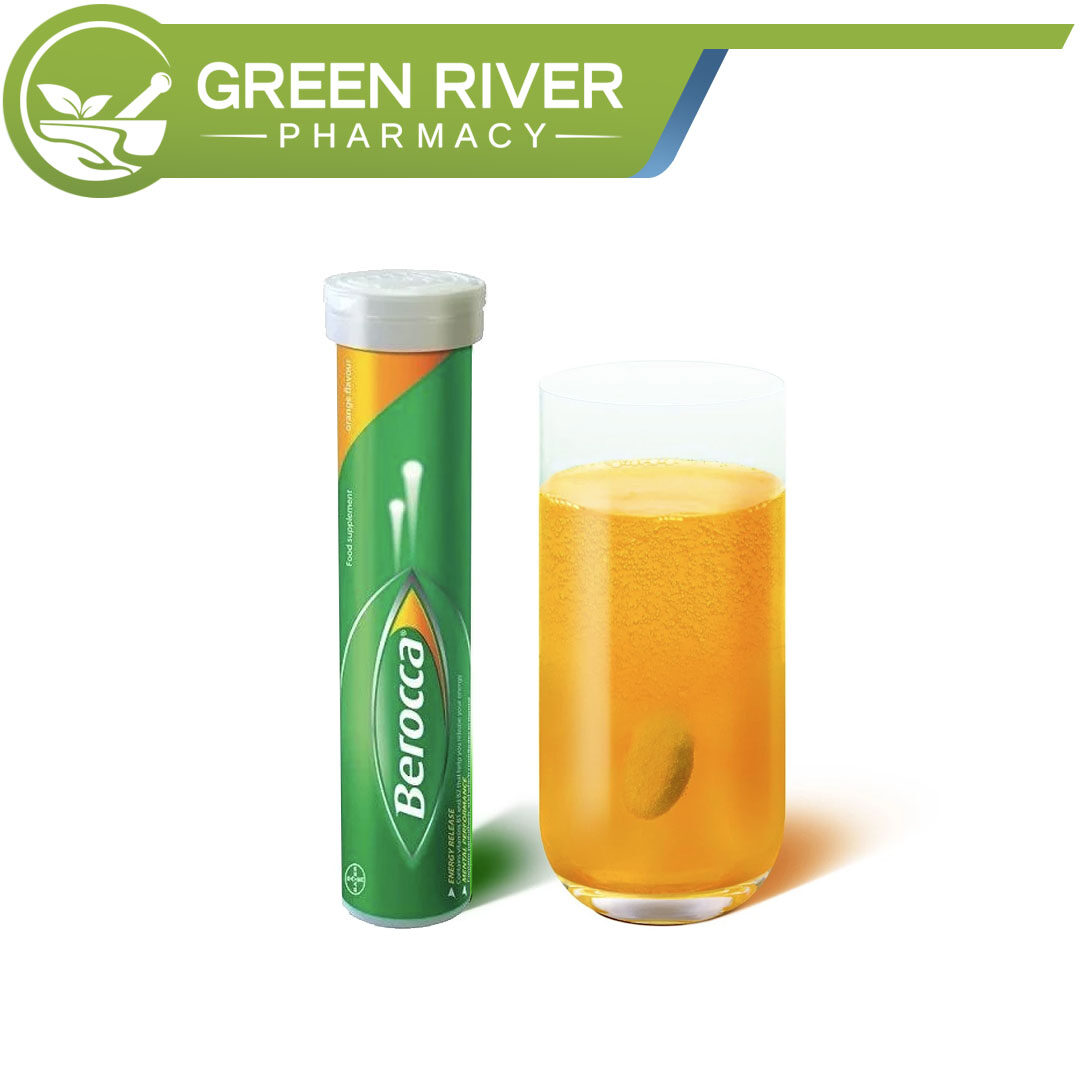
Price: MYR 24.90 (promotion) > Lazada Malaysia
Each tablet contains Vitamins B1, B2, B3, B5, B6 ,B12, Biotin, Vitamin C 500mg, Calcium 100mg, Folic Acid, Magnesium, Zinc 10mg.
Berocca Vitamin C review ratings: 5.0/5 (Lazada)
7. Flavettes Vitamin C
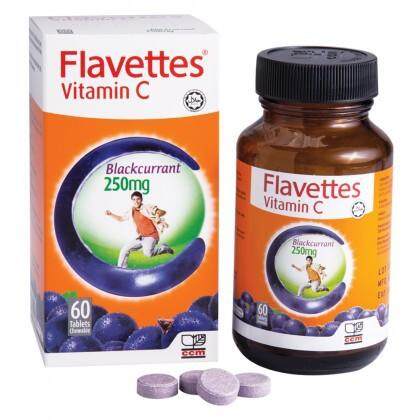
Price: MYR 8.98 (promotion 50% discount) > Lazada Malaysia
- A daily dietary supplement of Vitamin C Vitamin C (Ascorbic Acid)
- For healthy bones, teeth, gums as well as general make-up and maintenance of the body.
- Each Tablet contains 250mg Vitamin C (Blackcurrant flavor)
- Dosage: 1 tablet daily or as advised by physician.
- Tablets to be dissolved in the mouth or chewed
Flavettes Vitamin C review ratings: 4.9/5 (Lazada Malaysia)
8. Kordel Vitamin C for Kids
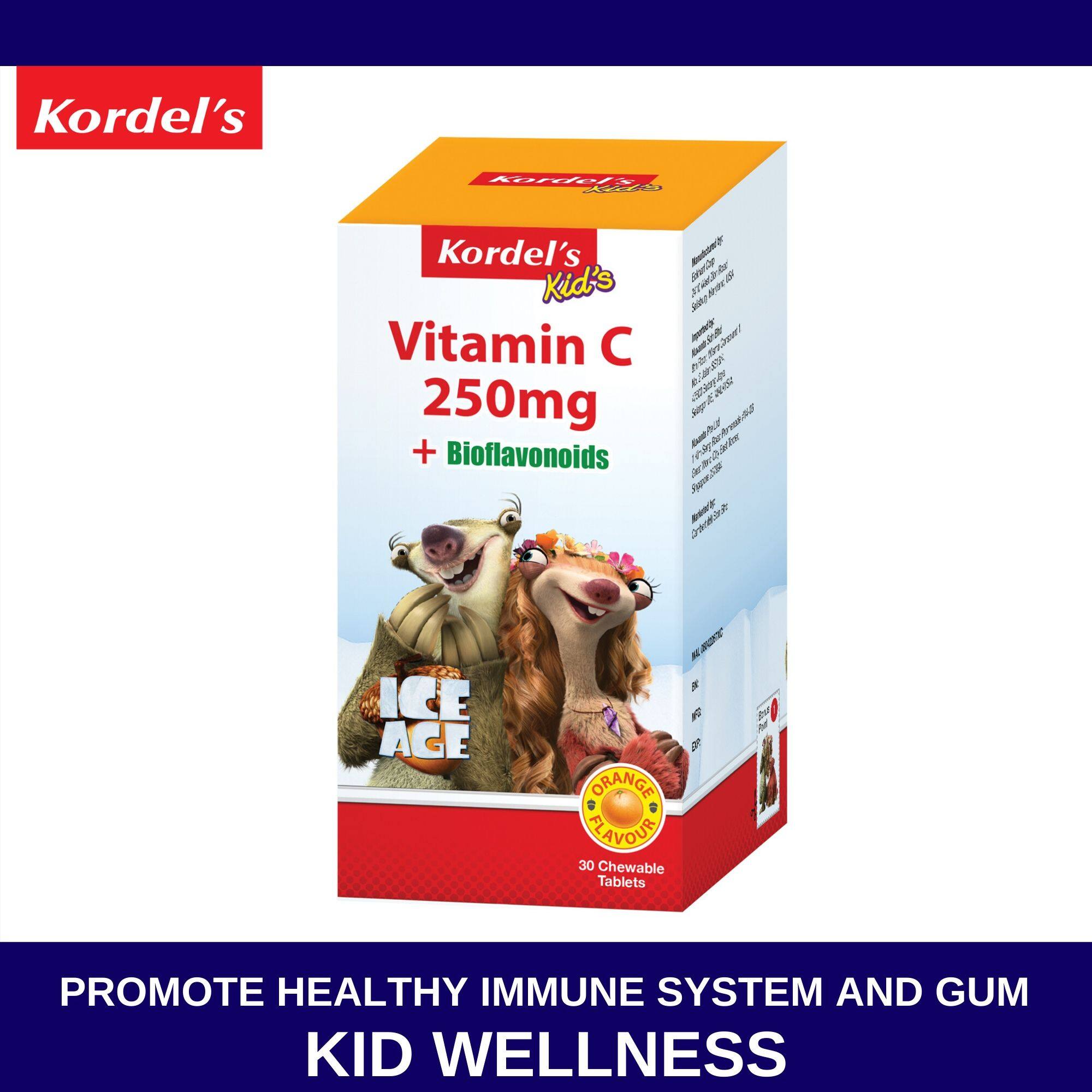
Price: MYR 26 (promotion 27% discount) > Lazada Malaysia
Kordel’s Kid’s Vitamin C + Bioflavonoids helps build a strong immune system. Each chewable tablet provides 250mg of vitamin C. It is the only children’s high strength vitamin C supplement that contains 25mg of lemon bioflavonoids, a compound that maximizes the benefits of vitamin C.
Study has shown that combination of vitamin C and bioflavonoids offers a synergistic antioxidant protection which not only helps to prevent bleeding gums, but also to promote immune function against common colds and flus.
9. Amway Vitamin C
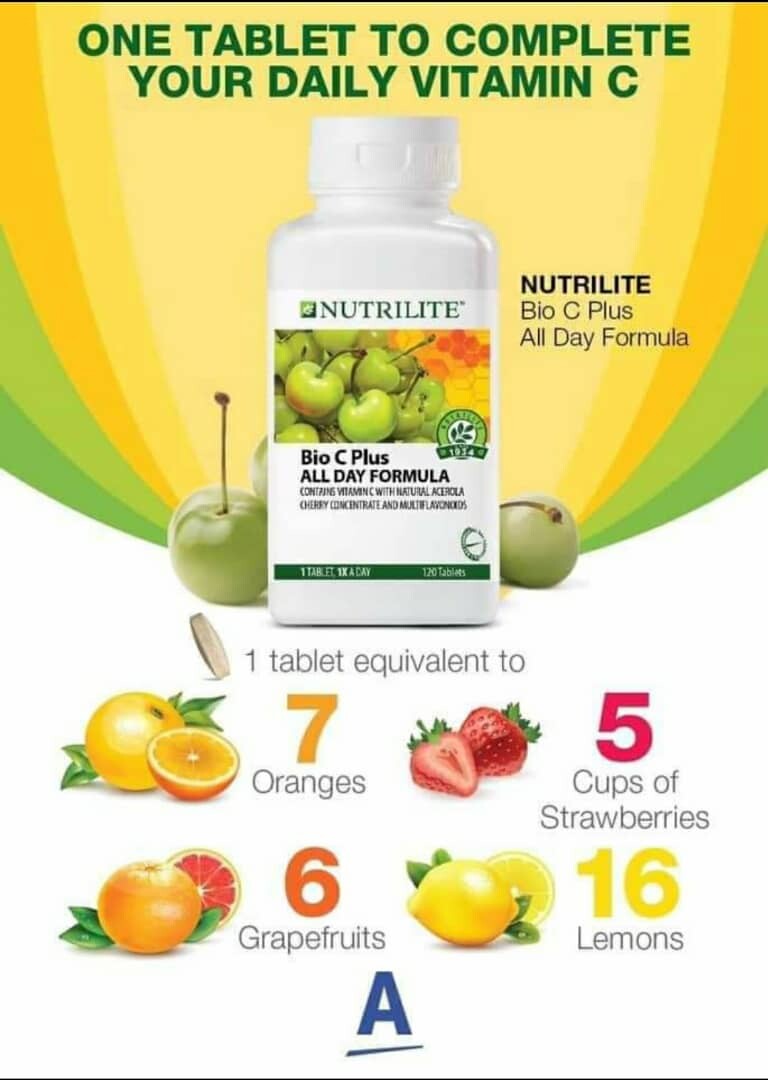
Price: MYR 123.65 > Lazada Malaysia
AMWAY NUTRILITE Bio C Plus All Day Formula is a dietary supplement that helps replenish vitamin C throughout the day. Bio C Plus All Day Formula provides you a steady release of vitamin C, which allows your body to absorb and use the nutrient more efficiently. It also provides a convenient and simple way to support a healthy daily diet.
NUTRILITE Bio C Plus All Day Formula contains 500mg of vitamin C per tablet, and zero artificial colourants, flavours or preservatives. The Bio C Plus All Day Formula also contains phytonutrients from acerola cherries, which are grown on our organic farm.
Regardless of lifestyle, vitamin C is one of the most essential nutrients in our diet. Besides keeping us strong and healthy, it is important for athletes and those who lead a stressful lifestyle. With Bio C Plus All Day Formula, you have a natural and convenient way to fill the nutritional gap in your daily diet. Bio C Plus All Day Formula is specifically formulated with an extended release technology that ensures you a sufficient daily dose of vitamin C from acerola cherries, which is your best source of vitamin C.
10. Vitamin C Shaklee (Shaklee Sustained Release Vita C Plus)
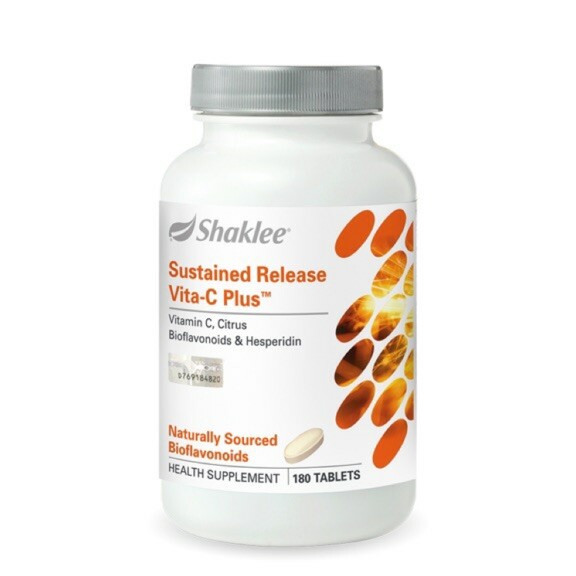
Price: MYR 100 > Lazada Malaysia
- Rediscover feeling healthy. The right nutrients are important for overall health and well-being.
- Vitamin C is an essential water-soluble vitamin that has a wide range of functions in your body, with its primary function being a good antioxidant.
- It also plays an important role in promoting the health of teeth, gums, bones and basically, for everything that makes-up your body
- Suggested use: For adults only. Take 1 tablet a day with a meal
Disclaimer: The prices might vary based on the e-commerce promotions, deals or campaigns that are launched on a regular basis in Malaysia.
What You May Not Know about Vitamin C
A local large scale study on Malaysian older adults showed that a third has vitamin C inadequacy (Fakhruddin et al. 2016).
Do you know that Vitamin C supplements can come in many forms? Supplements typically contain vitamin C in the form of ascorbic acid, which has equivalent bioavailability to that of naturally occurring ascorbic acid in foods, such as orange juice and broccoli. Other forms of vitamin C supplements include sodium ascorbate; calcium ascorbate; other mineral ascorbates; ascorbic acid with bioflavonoids; and combination products, such as Ester-C®, which contains calcium ascorbate, dehydroascorbate, calcium threonate, xylonate and lyxonate.
A few studies in humans have examined whether bioavailability differs among the various forms of vitamin C. In one study, Ester-C® and ascorbic acid produced the same vitamin C plasma concentrations, but Ester-C® produced significantly higher vitamin C concentrations in leukocytes 24 hours after ingestion. Another study found no differences in plasma vitamin C levels or urinary excretion of vitamin C among three different vitamin C sources: ascorbic acid, Ester-C®, and ascorbic acid with bioflavonoids.
Additionally, the Upper Limit (UL) for supplemental vitamin C — the amount most people can consume daily without negative effects — is 2,000 mg (nih.gov).
Most vitamin C supplements provide a daily dose of anywhere from 250–1,000 mg, so it can be easy to exceed the UL if you’re not careful. Be sure to read the packaging and take only the recommended dose to avoid complications.
Vitamin C may also interfere with chemotherapy, radiation treatments, or cholesterol lowering drugs (nih.gov).
That said, when used in clinical settings treating critically ill patients, very high dose vitamin C treatments are safe and not associated with significant side effects (Critical Care).
Can Vitamin C Protect You Against COVID-19?
While findings from this study showed that high doses of Vitamin C had reduced mortality rates and resulted in shorter hospital stays, it was too small of a cohort (14 patients) to be considered as a strong study.
A review, published December 7, 2020, in the journal Nutrients, recommended the use of vitamin C as an additional therapy for respiratory infections, sepsis and COVID-19.
In December 16, 2020, Rob Verkerk, Ph.D., founder and scientific director of the Alliance for Natural Health, announced the launch of aninternational vitamin C campaign in response to the Nutrients review, which "puts all the arguments and science in one, neat place."
In December 16, 2020, Rob Verkerk, Ph.D., founder and scientific director of the Alliance for Natural Health, announced the launch of aninternational vitamin C campaign in response to the Nutrients review, which "puts all the arguments and science in one, neat place."
In the first RCT (Randomised Controlled Trial) to test the value of vitamin C in critically ill COVID-19 patients, 56 ventilated patients in Wuhan, China, were treated with a placebo (sterile water) or intravenous vitamin C at a dose of 24 g/day for 7 days. The trial was originally designed for 140 subjects and was thus underpowered, with only 54 patients due to a lack of new admissions. The authors concluded that HDIVC (high dose intravenous Vitamin C) might show a potential signal of benefit for critically ill patients with COVID-19.
The Frontline COVID-19 Critical Care Expert Group (FLCCC), a group of emergency medicine experts, have reported that, with the combined use of 6 g/day intravenous vitamin C (1.5 g every 6 h), plus steroids and anticoagulants, mortality was 5% in two ICUs in the US (United Memorial Hospital in Houston, Texas, and Norfolk General Hospital in Norfolk, Virginia), the lowest mortality rates in their respective counties .
The largest registered trial is the Lessening Organ Dysfunction with Vitamin C-COVID (LOVIT-COVID) trial in Canada, which is recruiting 800 patients who are randomly assigned to vitamin C (intravenous, 50 mg/kg every 6 h) or a placebo for 96 h, i.e., equivalent to 15 g/day for a 75 kg person (NCT04401150).
This protocol has also been added as a vitamin C arm in the Randomized, Embedded, Multifactorial Adaptive Platform Trial for Community-Acquired Pneumonia (REMAP-CAP; NCT02735707). The study design provides further rationale for the use of vitamin C in COVID-19 patients .
There is also a high-dose (10 g/day) vitamin C intervention study in 500 adults is in progress in Palermo, Italy (NCT04323514).
In the UK, the Chelsea and Westminster hospital ICU, where adult ICU patients were administered 1 g of intravenous vitamin C every 12 h together with anticoagulants , has reported 29% mortality , compared to the average 41% reported by the Intensive Care National Audit and Research Centre (ICNARC) for all UK ICUs . While the authors have stated that the addition of an antioxidant in the form of vitamin C could have contributed to the lower mortality rate, it should be noted that other clinical factors and procedures could also account for the improved mortality and that the Chelsea and Westminster ICU serves a more affluent sector of the population with less deprivation on the basis of the Index of Multiple Deprivation (IMD). Deprivation, while a risk factor for COVID-19 mortality, is also a predictor of low vitamin C status. In the UK, an estimated 25% of men and 16% of women in the low-income/materially deprived population are deficient in vitamin C > 11 µmol/L .
At the Cleveland Clinic, researchers are enrolling people into a study to see if vitamin C or zinc — or a combination of the two — can reduce the duration of COVID-19 symptoms. Patients will be given the supplements after they have tested positive for COVID-19.
As of January 2021, more than 50 studies have been launched to investigate the benefits of vitamin C against COVID-19. There are many such studies underway and you can review the status of these trials on clinicaltrials.gov.
While generally considered safe even in high doses, way too much vitamin C — anything above 2,000 milligrams daily—can cause headaches, insomnia, gastric discomfort, diarrhea, heartburn, and other issues.
Temporarily taking megadoses of vitamin C supplements to combat a case of the cold or flu is likely not going to cause a problem.
Many vitamin C supplements that are above the US RDA are sold in the market. It’s important to seek a physician’s advice if you intend to take high dose vitamin C on a long term basis. High doses of vitamin C (over 500 mg per day) over the long-term may increase the risk of cataracts. High-dose vitamin C can also reduce the effectiveness of certain medications and interfere with certain blood tests.
To be on the safe side, you may also request for your kidney functions to be monitored.
For long-term, daily use, your best bet is to eat a diet that is full of high quality organic vegetables and fruits that are minimally processed. Not only will you get vitamin C, but you will get all the other accessory nutrients and micronutrients that are needed to optimize it.
That said, there are also several reasons to consider taking supplemental vitamin C. First, your body cannot make it. Second, most people do not get sufficient amounts from their diet and, third, your body’s requirement for vitamin C can increase 10-fold whenever your immune system is challenged by an infection, disease or physical trauma.
How to choose your Vitamin C supplement in Malaysia
Selecting the right vitamin C supplement depends on a variety of factors, including the form, quality, dose, and price.You can start by considering how you’ll be using the supplement. For instance, if you prefer to take a pill, you’ll want to check out encapsulated vitamin C supplements.
If you don’t like swallowing pills or want to mix it into beverages, your best bet is to consider liquid or powdered supplements.
Next, you want to check the supplement’s quality. Evaluate whether a brand is reputable by exploring their ingredient sourcing and manufacturing standards. A good product will also be tested by third-party organizations, such as USP, Consumer Labs, or NSF International.
Take a look at added ingredients, too. If you’re trying to limit your intake of added sugars, you want to opt for a supplement that doesn’t contain sugar.
Another factor to consider is the dosage. The recommended daily amount of vitamin C for adults is 90 mg for men, 75 mg for women, and up to 120 mg for women who are pregnant or breastfeeding. However, certain medical conditions may require that you take much higher doses (nih.gov).
Children have lower vitamin C requirements, which range from 25–75mg per day, depending on their age. However, it’s not generally advised to give children a vitamin C supplement unless their pediatrician has recommended it.
Note that the Tolerable Upper Intake Level (UL) for vitamin C for men, as well as women ages 19 and above, is 2,000 mg. Meanwhile, the UL for children ranges from 400–1,800 mg, depending on age. Daily intakes at or below these amounts are unlikely to result in any adverse health effects (nih.gov).
Although vitamin C is a natural compound, getting too much of it can cause uncomfortable and potentially serious side effects.
Some of the most common reported side effects include headaches, flushed skin, nausea, and vomiting (Trusted Source).
Consuming high doses of vitamin C for prolonged periods may also increase your risk of kidney stones (Trusted Source).
Generally, high doses of vitamin C are unnecessary and could contribute to harmful side effects. Only consume high doses if your healthcare provider recommends doing so.
Finally, you want to consider your budget. Some professional-grade brands can be expensive, but keep in mind that a higher price doesn’t necessarily mean a better product. There are plenty of high quality options available at various price points.
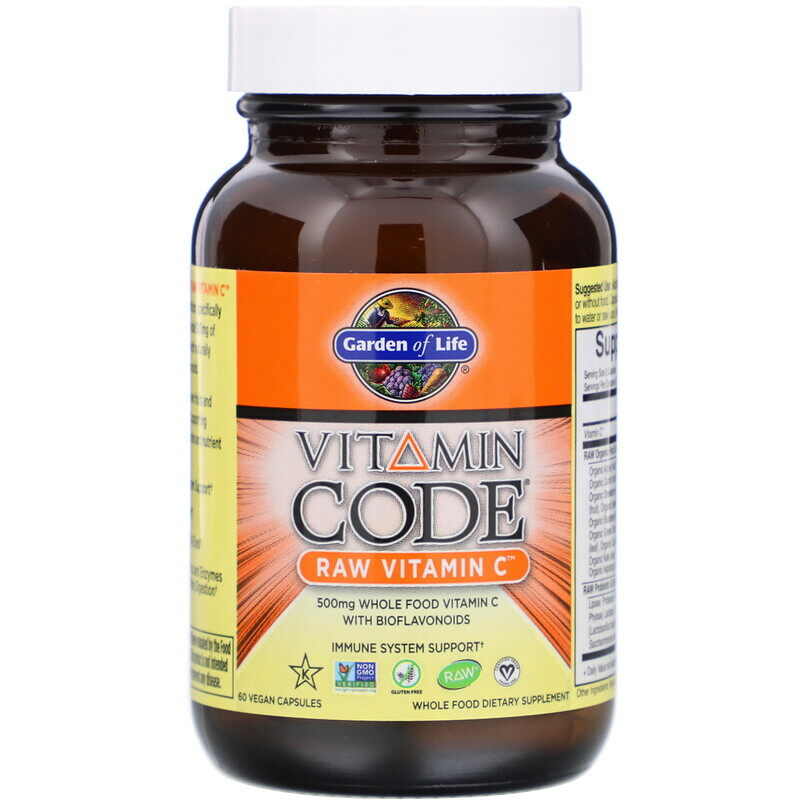
.png)

.png)



.png)


Comments
Post a Comment